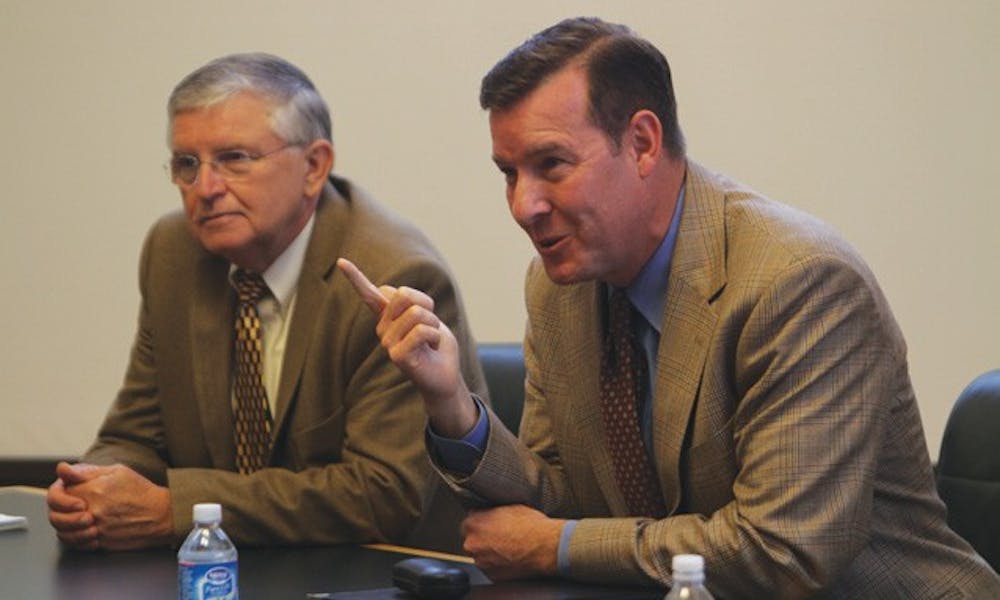Collaboration between civilian organizations and the military is crucial in providing support to fragile and post-conflict areas, panelists said Thursday evening.
Representatives from military and developmental civilian groups discussed both the challenges and potential benefits of working together in relief operations. As the latest installment in the Sanford School of Public Policy’s Rethinking Development Policy Lecture series, the panel addressed key policy issues to a large audience.
The differing roles of military and nongovernmental organizations complicate collaboration efforts in post-conflict areas, said Chris Seiple, president of the Institute for Global Engagement, which promotes sustainable religious freedom around the world.
“There are differences in the overall goals of the military and NGOs,” Seiple said. “For example, while the military brings security and instant reconstruction, NGOs raise situational awareness and provide measures for effectiveness.”
Seiple also emphasized the importance of breaking down barriers for communication and cultural understanding. In order to engage in global challenges, one must understand the partners with whom he is working, he said.
Ron Johnson, senior policy adviser at the North Carolina-based independent research institute RTI International, emphasized the role that NGOs play in not only disaster relief projects but also government stabilization programs, relating back to his work experience in Iraq.
“Through the eight years I spent working in Iraq, we were involved in restoring institutional structures and establishing constitutional and legal structures within the local communities,” Johnson said. “We were focused on the long-term perspective and horizons.”
The same kind of long-term assistance is needed in disaster relief regions as well, but there are different considerations such as geography, Johnson noted.
The military offers its own unique perspective when looking at post-conflict areas, said Lt. Cmdr. Dan Straub, U.S. Navy surface warfare officer. In his presentation, Straub stressed the role that the military plays in security, the perceptions and misconceptions that the public has about military operations and the need to find common ground between NGOs and military operations.
“There’s often this misconception that the military is ‘in charge’ when entering post-conflict regions,” Straub said. “Rather, because the military’s impact is short term, I think of it as a facilitator role.”
Straub also spoke about his own experiences following the 2004 tsunami in Banda Aceh, suggesting that clear goals should be established before working in a post-conflict or post-disaster region.
“There are so many NGOs working in these conflict sites, but there is no coordination,” Straub said. “If you don’t establish a common vision, it will just do more harm than good.”
After listening to the varying perspectives of both NGOs and the military, the next step is to establish greater communication and adherence to guidelines, said Frank Webb, visiting lecturer at the Duke Center for International Development and one of the event’s organizers.
“With the military becoming more involved in peacekeeping than fighting wars, the issue of NGO and military collaboration is here to stay,” Webb said. “The goal of the conference is to enable the Duke community to participate in discussion, understand the varying points of views and identify possible ways forward.”
Get The Chronicle straight to your inbox
Signup for our weekly newsletter. Cancel at any time.

